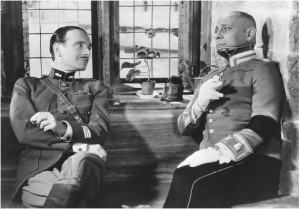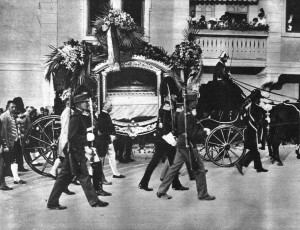How We Ended Up Doing It Ourselves
When we first moved to Southern California, one of the biggest challenges was finding a synagogue. We found to our dismay that a great deal of the problem centered around money. Synagogues are not like churches, where the plate is passed every time worship happens. Rather, you give all your money up front, in the form of a membership, which includes the right to enter the synagogue and worship on the holiest days of the year: the High Holidays. We did not have that kind of money as graduate students — thousands of dollars — and so we were at pains to find someplace to worship on the High Holidays. The synagogue with which we have been affiliated since then was good enough to give tickets outright to those with university IDs. But on graduation, we ran into the same problem. Luckily, by that point, we had found the synagogue choir, and were enthusiastic participants. There were a few years of pushback from the Rabbi, as my wife is not Jewish, but we had a wonderful time singing with other members, who became our friends. Once we put on the white robes, no one asked us for tickets. But there were the occasional attempts to “make us legal” — to take us on as scholarship cases to whom membership was donated. I accepted this — it seemed to make people happy — until one night, the synagogue secretary called and said that we needed to send money — that the synagogue had been keeping track of the money it had spent on us and wanted more of a contribution from us. To my disturbance, I found out that our seats did not have a marginal cost, which was next to nothing, but that the charity the synagogue had extended to us was in “real money.” In other words, real donors had put in real money to pay for the synagogue’s list price for the seats. And at some point, we would be expected to pay the synagogue back. It was an impossible situation, but our friends in the choir smoothed it over, in the interests of our staying. So we stayed for a few more years. But one year, the nature, function, and experience of the choir changed in a permanent way, one which we could not accept. And my wife was simply too tired, after so many years, to get through the rehearsals. I struggled on for a couple more years, for my friends’ sake and for the sake of the seats, but I couldn’t do it. What finally ended it was that I lost my sense of pitch, and I could not hold a tune anymore.
In this way, our affiliation with the synagogue tapered off. One year, one of our friends asked the Rabbi why we weren’t there, and the next year we got tickets, but I am tired of living off charity. We’ve asked whether there’s some way of earning back our tickets in kind, but they are not set up for it. The truth is that we do not belong there; we will never have enough money to belong there and to pull our own weight. Everyone has been very, very kind to us — the Rabbi, the Cantor, our friends in the choir — but in the end, everything really is dependent on the money the synagogue brings in. They cannot operate the synagogue at the high level it’s attained, with a religious school, social action programs, a beautiful building, etc., if people get in for free more than once in a blue moon. We were in the choir for 15 or 16 years, but you can’t rest on your laurels forever.
So, this year, we’re going to do it ourselves, as we did in the past. We have the prayerbooks, we have the order of service, and we know where the singing goes, as choir members do. It is difficult to have the illusion of a communal experience, which these holidays truly must be. It is hard to pray alone, and to have a sense that it means what it did in the synagogue. But the fact is that charity, no matter how kindly offered, is double edged, and that someone always pays, somehow. We have gotten used to an experience that is better than we deserve, and now it is time to make our way according to our own deserts. In the end, perhaps we will be less distracted by the externals, and find in our own hearts and spirits that which we require. The U’netane Tokef prayer says, “But repentance, prayer, and righteousness may avert [God’s] severe decree.” One does not need infrastructure for any of those things, only an open heart and a willing mind. And it may be that God’s severe decree is coming for us, no matter how good our intentions, where we celebrate, or how much we pledge in the Kol Nidre Appeal. It would be so much simpler if we were an upper-middle-class or lower-upper-class all-Conservative-Jewish family with two great jobs and two kids. But if God had meant us to do things the easy way, and come in by the front door, he would have surely led us along that path. Our path is different.
https://printculture.com/wp-content/uploads/2014/08/HIGH-HOLIDAYS-5775-Do-it-Yourself-2.pdf




